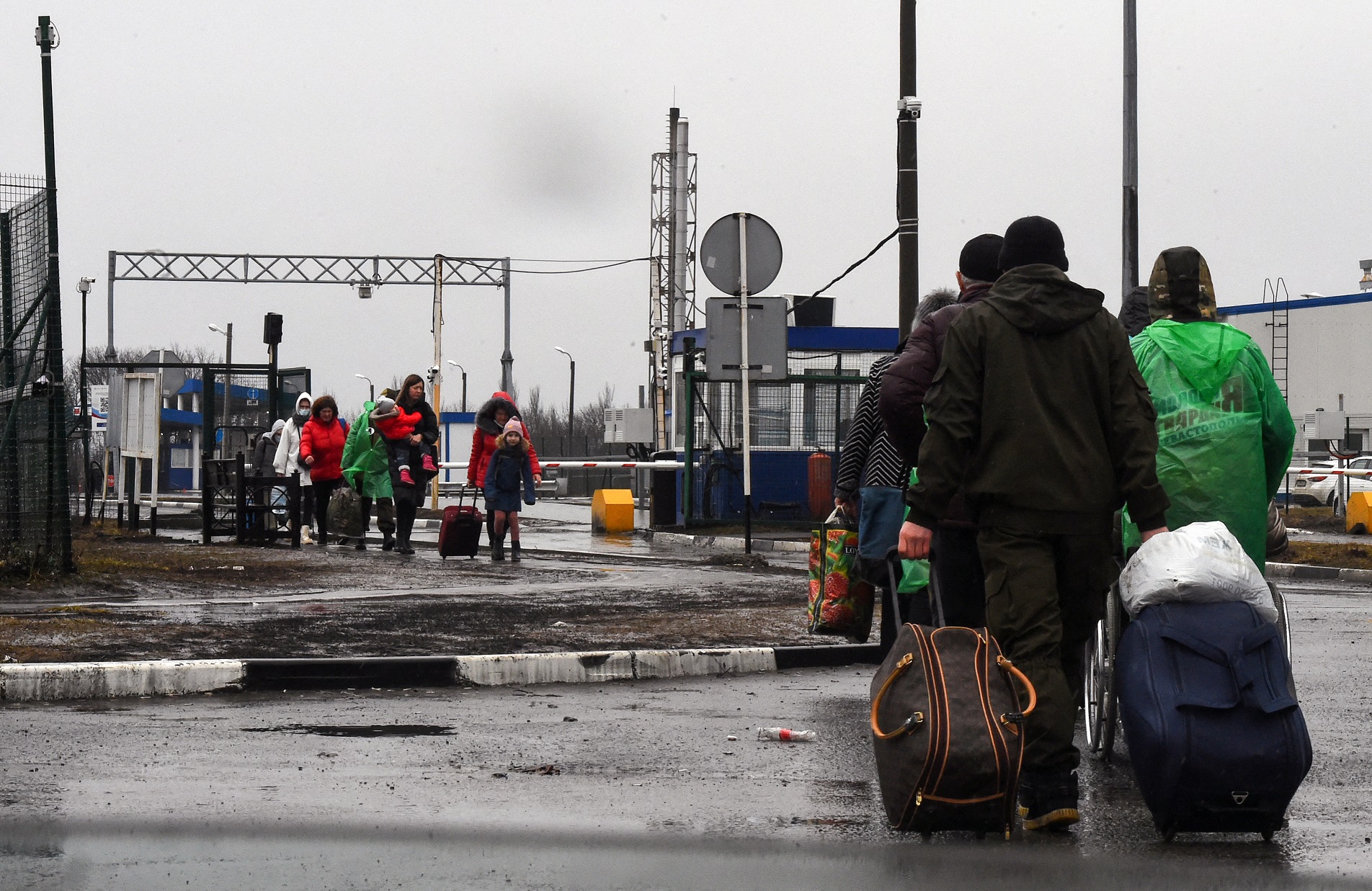مع بدء الحرب الروسية على أوكرانيا، وما رافقها من تغطيات مفتوحة وأخبار متسارعة، وفي خضم استقطاب حاد أعاد إحياء فكرة المعسكرين الغربي والشرقي، تجد غرف الأخبار العربية نفسها في تحدٍ لتقديم تغطية لا تقع في فخ الترويج لأخبار موجهة سياسيًا، وتعالج الحرب بمقاربات أخلاقية ترتبط باهتمامات الجمهور العربي.
غُرف الأخبار يجب أن تتأنى للحظة قبل الانخراط في التغطية، لوضع منهجية واضحة تحدد فيها شكل التغطية وقواعدها العامة، زوايا المعالجة، المصطلحات المستخدمة، آلية التعامل مع المحتوى الذي ينتجه المستخدم ورسم نموذج عمل واضح يضمن التحقق من المعلومات. يجب أيضا أن تحدد قواعد التعامل مع تصريحات السياسيين ووكالات الأنباء لتجنب الوقوع في فخ الترويج لدعاية سياسية موجهة، وأن تتبنى زوايا معالجة تجيب على أسئلة جمهورها العربي الملحّة.
أجهزة الدعاية السياسية (البروباغندا) في أوج نشاطها الآن، وعلى غرف الأخبار أن تستوعب ذلك جيدا؛ وتسعى لوضع قواعد صارمة لكيفية التعامل مع البيانات العسكرية وتصريحات السياسيين، لتنقل فقط ما هو حقيقي ومهم على صعيد التطورات في الميدان. ونتذكر هنا تصريحات القادة العسكريين لجيش الاحتلال الإسرائيلي حول بدء اجتياح بري لغزة في الحرب الأخيرة، والتي اتضح أنها كانت طعما تلقّفه الصحفيون لدفع مقاتلي المقاومة للخروج من مواقعهم.
في الحرب كما في كل أزمة، الأبرياء هم الضحية، وعلى الصحفيين أن ينحازوا في تغطيتهم لمصالح هؤلاء وأن يحاولوا جعل صوتهم أعلى من صوت المدافع، عبر تكثيف التقارير التي تُظهر تأثير الحرب عليهم ونقل معاناتهم اليومية بمساحة تغطية مشابهة لتلك الممنوحة للتحليل السياسي والعسكري.
هذه حرب.. ومغبة الحرب وخيمة، وينبغي على الصحفيين احترام معاناة الناس، وألا ينساقوا لتغطيات الإثارة والجدل أو الانتقاص من كرامة الضحايا والأبرياء سعيا لتحقيق تفرد أو تصدّر "ترند" فخسارة الترند ليست كارثة، خسارة السمعة الأخلاقية هي الكارثة.
ليس على كل وسائل الإعلام أن توفد مراسليها لأوكرانيا كي تتمكن من مواكبة الحدث، هناك جوانب عديدة للتغطية تهم الجمهور العربي، لأن تبعات الحرب واسعة، والجمهور العربي ستتأثر حياته اليومية، بدءا باحتمالية توقف صادرات القمح، إلى ارتفاع أسعار النفط، وعودة الطلبة العرب من أوكرانيا، وغيرها من جوانب المعالجة التي تخدم فعلا اهتمامات الجمهور العربي، وتجيب على أسئلته الملحة أكثر من مجرد الاكتفاء بتغطية الحرب ذاتها.
يقدم فريق مجلة الصحافة الإرشادات التالية لمساعدة غرف الأخبار في ضمان حق الجمهور في الوصول إلى المعلومة.
التحقق من الأخبار
1- التحقق من الفيديوهات والصور التي تنتشر حول التطورات الميدانية والتروّي في استخدامها. في مثل هذه الأحداث تقوم غرف عمليات متخصصة بضخ محتويات مضللة لتقويض مصداقية الأحداث الفعلية على الأرض. ويمكنكم الاستفادة من إصدارات المعهد حول التحقق.
- دليل التحقق من عمليات التضليل والتلاعب الإعلامي.
- البحث عن الحقيقة في كومة الأخبار الكاذبة.
2- عدم التعامل مع البيانات الرسمية الصادرة من الحكومات ووكالات أنبائها كحقائق مطلقة بل كمصدر قابل للتشكيك.
3- المقارنة بين المصادر.
4- التحقق الميداني من روايات المصادر إن أمكن ذلك.
5- إعمال الحس النقدي في التعاطي مع الشهود العيان.
المعارف الصحفية
- استحضار القصة الإنسانية في التغطية الصحفية، والحرص على حضور المدنيين كمصدر رئيسي في القصص الصحفية، والإشارة إلى كلفة الحرب على المدنيين ( القتلى، وفقدان المساكن والعمل…).
- مراعاة السياقين الثقافي والتاريخي للأزمة.
- البحث في أسباب قيام الحرب.
- تقديم التحاليل وخلفيات الأحداث بالميدان، لأن الخبر قد يكون متاحا في كل مكان.
- الإلمام بالجغرافيا والمجتمع والتاريخ والاطلاع على القانون الدولي.
أخلاقيات التغطية الصحفية
- التقييم الأخلاقي للتغطية داخل غرف الأخبار لاتخاذ قرار النشر خاصة فيما يرتبط بالصور والفيديوهات الصادمة والاستناد على معياري المصلحة العامة والقيمة الخبرية، لا معايير "الترند" والانتشار.
- تجنب نشر صور الأطفال إلا إذا كانت غرفة الأخبار تريد إحداث الصدمة لدى الجمهور.
- عدم الانجرار وراء الانحيازات الأيديولوجية سواء من ناحية اختيار الضيوف أو مصادر الخبر.
- الحرص على استخدام مصطلحات محايدة في وصف أطراف النزاع
- تجنب المبالغة في وصف الأحداث بالميدان، والابتعاد عن التهويل واستخدام عناوين الإثارة، وتقديم المعلومة المجردة.
المعالجة الصحفية
- عدم الاكتفاء بالتغطيات المفتوحة المباشرة التي تتعامل مع التطورات حال حدوثها، والعمل على إنتاج تقارير معمّقة تفسر تلك التطورات وتربطها بسياقات الأزمة العسكرية والسياسية والاقتصادية والإنسانية.
- تجنّب القفز لاستنتاجات أو تقديم سيناريوهات متوقعة لمآلات الحرب وتطوراتها المحتملة.
- اختيار الضيوف من المحللين والخبراء بناء على خبرتهم المهنية وقدرتهم على تقديم تحليل موضوعي، لا بناء على قدرتهم على الإثارة أو تقديم تحليلات مؤدلجة تغذي الاستقطابات.
- عدم الاكتفاء بأخبار وكالات الأنباء خصوصا إن كان لدى وسيلة الإعلام مراسلون في الميدان، فالوكالات لها معايير مختلفة في تحديد القيمة الخبرية للأحداث.
تغطية الأزمة للعالم العربي
- التركيز على القضايا التي لها تأثير مباشر على العالم العربي:
- اقتصاديا: تعتبر أوكرانيا من المصدّرين الكبار للقمح إلى العالم العربي، وتوقف الإمدادات قد يؤدي إلى ارتفاع أسعار الخبز ومشتقاته في السوق.
- ارتفاع أسعار المحروقات وتأثيرها على غلاء المواد الأساسية.
- حدوث أزمة في إمدادات السلع الأساسية على المستوى العالمي وارتفاع تكلفة الشحن وتأثير ذلك على أسعار المواد الأساسية.
- تأثيرات الحرب على الجالية العربية في أوكرانيا.
- تأثير عقوبات الغرب على روسيا على التجارة بين العالم العربي وروسيا.
- سياسيا: تجمع الدول العربية مصالح سياسية مع روسيا ومع دول الغرب، لذلك على التغطية أن تشير إلى تأثيرات الغزو على الخارطة السياسية
- تأثير الاصطفاف السياسي العالمي على الأحلاف الناشئة بين العالم العربي وروسيا والغرب.











































